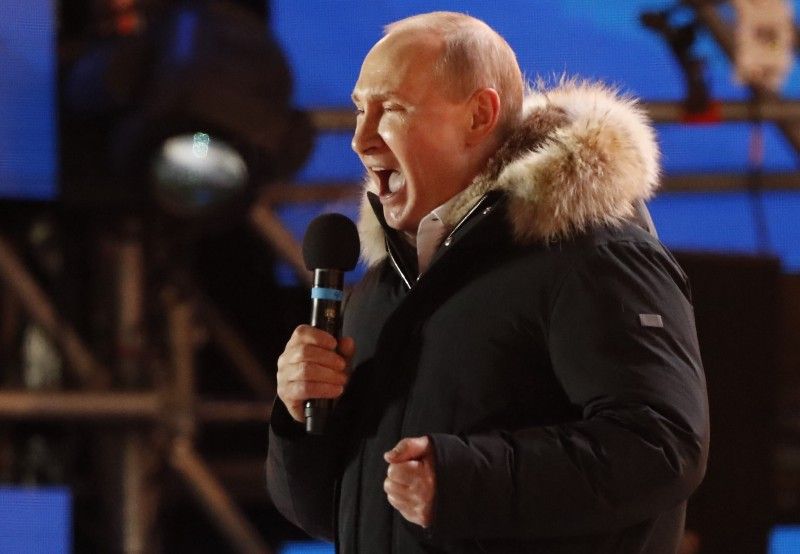March 20, 2018
Russian President Vladimir Putin rolled to victory in Sunday’s elections, sure. But one particularly poignant data point for him was to take 70% of the vote in Moscow, cradle of the upper middle-class opposition that once put hundreds of thousands on the streets against him.
Back in 2012, when those protests were in full force, Putin failed to even win a majority in the capital city, notching just 48% of the vote. It was, and remains, the only time a Russian president has failed to carry the capital city.
It’s true that many of those most implacably opposed to Putin simply boycotted this election, and that there wasn’t even a remotely palatable opposition candidate — the role played better by oligarch Mikhail Prokhorov in 2012 than by socialite Ksenia Sobchak in 2018.
But do those factors fully account for a 22-point swing in Putin’s support among Muscovites? The reality is that six years on from the largest protests in Russia’s post-Soviet history, Putin’s assertive nationalism, skillful messaging, and deft repressions have both boosted his appeal and demoralized his opponents. Now, if Putin could just figure out what to do in 2024…
More For You
- YouTube
On Ian Explains, Ian Bremmer takes a look at the growing surge in global conflict and the ripple effects of so much violence, war, and armed struggle throughout the world.
Most Popular
Think you know what's going on around the world? Here's your chance to prove it.
French President Emmanuel Macron, German Chancellor Friedrich Merz, Ukrainian President Volodymyr Zelenskiy, U.S. Special Envoy Steve Witkoff and businessman Jared Kushner, along with NATO Secretary-General Mark Rutte and otherEuropean leaders, pose for a group photo at the Chancellery in Berlin, Germany, December 15, 2025.
Kay Nietfeld/Pool via REUTERS
The European Union just pulled off something that, a year ago, seemed politically impossible: it froze $247 billion in Russian central bank assets indefinitely, stripping the Kremlin of one of its most reliable pressure points.
Big global stories. Real conversations with world leaders. Our award-winning global affairs show, GZERO World with Ian Bremmer, goes beyond the headlines on the stories that matter most. Here’s a look back at the 10 most quotable moments from this year’s episodes.
© 2025 GZERO Media. All Rights Reserved | A Eurasia Group media company.
